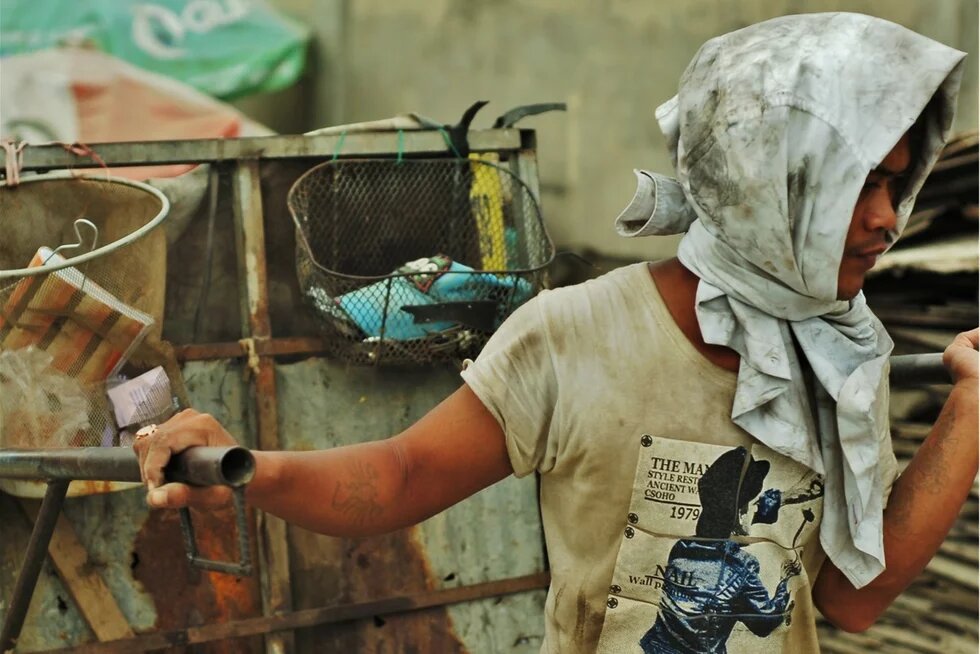
It is not an unusual sight to see narrow beams of light scanning the streets around markets every evening in Phnom Penh. The beams of light move from one pile of trash to another, occasionally stopping to see if there is any plastic, aluminum or recyclable waste.

These headlamps are switched for cheap plastic horns during the day that are part of the sounds of many Cambodian neighborhoods. The beeping of the horn is a signal for residents to bring out trash that can be recycled and to put it in a motorcycle or hand-drawn cart.
The headlamps and horns are tools used by an informal but extremely critical network of informal workers called edjai. They are the unofficial recyclers of Cambodian cities, towns and villages, creating an ad hoc recycling economy in the absence of effective official policies to manage recyclable waste in the country.
According to the Ministry of Environment in 2022, only 62% of trash was formally collected, the informal sector cleans up around 8% of garbage and the rest remains uncollected, which is likely burned either in areas with no collection or in rural areas. Almost all of the collected trash is sent to neighboring countries with very few facilities in Cambodia — again official policies have been lacking in encouraging more in-country processing.
Edjai is a vulnerable community of workers who have no social protections or labor rights and survive on small daily earnings which are in no way equal to the labor they perform or the value of the work they do for urban environments. They often earn no more than a few dollars a day, with some people even asking the edjai to buy recyclable trash, eating further into their earnings.
Despite performing a critical civic duty, edjai face discrimination from the very people whose trash they are cleaning and recycling. They are referred to as dirty or untrustworthy and often lack access to basic state services on account of being a disenfranchised community.
Their work is dangerous. Edjai are exposed to potentially toxic and unsafe medical waste, which is rarely stored separately and usually mixed with regular trash on the streets. They also do this work with no safety equipment or tools and work at hazardous dump sites too.
It is easy to find the fingerprints of an edjai on most recycled materials in Cambodia. They are integral to this process. Yet, they cannot make a dignified income that removes them and their families from poverty and economic vulnerability.
hbs wished to spur a deep rethink of the values we place on informal labor and who we value in society. The foundation supported a digital photo reportage project and two exhibitions in Phnom Penh to illustrate the lives of edjai, their work and how they are pushed to the margins of society despite their invaluable contributions.
This article is an excerpt from "Profiles of Courage." Click here for the full reading.